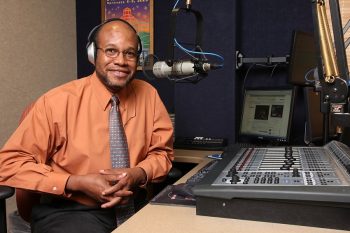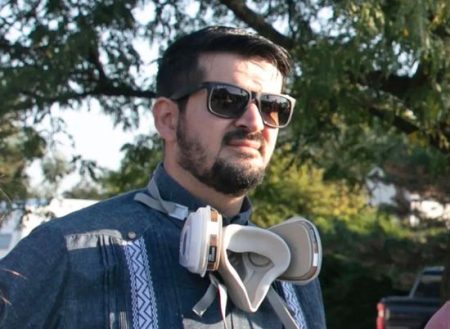“Blue Wall of Silence” Law Signed by McCrory

News Analysis By Moe White –
On Monday, July 11, Governor Pat McCrory signed into law HB 972: “Body-Worn & Dashboard Cameras/No Public Record.”
This legislation, which we wrote about last month, identifies itself as “An act to provide that recordings made by law enforcement agencies are not public records.”
For the most part, American law enforcement agencies (LEAs) are honorable institutions. Given the power that citizens cede to them in exchange for their vow to protect us, it is almost surprising how little corruption, graft, and abuse of power takes place. And most officers are also honorable, serving their communities and respecting the neighbors they serve. Of course there are bad apples, and bad leaders, but they are not the norm.
In a number of high-profile cases in recent years, LEA bodycams and dashcams have shown that denials of mistreatment of citizens by law enforcement were false, though very rarely has such evidence led to prosecution of offending officers. Apparently, even a slim possibility of being held to account is too much for the NC General Assembly to tolerate.
Hence, HB 972, which ensures that recordings made by taxpayer-funded bodycams and dashcams, used by taxpayer-funded police and sheriff’s departments around the state to record law enforcement activities, are specifically withheld from the taxpayers who fund them. The law should be renamed the “Blue Wall of Silence Protection Act.”
Evidence, hidden and exposed
Between Oct. 2014 and Nov. 2015, police in Chicago insisted that they had done nothing wrong in the shooting of 17-year-old Laquan McDonald. For 13 months Mayor Rahm Emanuel and his Independent Citizens Accountability Board kept secret a recording made by a Chicago Police Department dashcam; he released it, under court order, only after he had been reelected to a second term. The video showed Officer Jason VanDyke executing the teenager with 16 shots in the back from ten feet away while the young man ran for his life.
The dashcam recording proved beyond any doubt that VanDyke, 38, had deliberately shot the teen to death. Soon after it was made public, he was indicted for first-degree murder—the first time a Chicago police officer had faced a murder charge in 35 years.
Without the dashcam evidence, Officer VanDyke, a 14-year veteran of the CPD, would have literally gotten away with the murder of a teenage boy. Nor would this incident have been the first time he faced complaints for his unprofessional behavior. At least 20 citizen complaints were filed against him between 2001 and his arrest, ten of which alleged he used excessive force, two involved the use of a firearm, and one involved verbal abuse and the use of a racial slur. Not one complaint resulted in disciplinary action, even though a jury awarded a Chicago man $350,000 after determining that Van Dyke had employed excessive force against him during a traffic stop.
Public records, no public access
While few North Carolina LEAs use dash- and bodycams, the state has had a public records law for decades, and in its early years it was considered one of the best in the country for ensuring public and media access. Over the years, as the media used the law to discover and report on activities that embarrassed state legislators, government officials, and others, the General Assembly tried various ways to limit public access to those public records, often losing when media outlets went to court. This time, they’ve simply written a law that specifically ignores the Public Record Statute (GS 132-1).
The new law clearly lays out “whether, to whom, and what portions of a recording may be disclosed”; establishes “the procedure for contesting a refusal to disclose a recording or to obtain a copy of a recording”; and requires state and local law enforcement agencies (LEAs) “to provide, upon request, access to a method to view and analyze recordings to the state bureau of investigation and the North Carolina state crime laboratory.”
Under Section C of the law, “A person requesting disclosure of a recording must make a written request to the head of the custodial law enforcement agency that states the date and approximate time of the activity captured in the recording or otherwise identifies the activity with reasonable particularity sufficient to identify the recording to which the request refers.” [emphasis added]
What is “reasonable particularity”? That is decided by “the custodial law enforcement agency,” which is free to deny the request on its own authority. If a citizen is denied access, he or she may go to court, and a judge, reviewing the recording in chambers, may overrule the agency. But the law specifically prohibits the recovery of lawyers’ fees and other expenses, even if the citizen wins his or her suit.
No media allowed
But most citizens can’t even ask to see a police-cam recording, nor can the media. Who can request such disclosure is limited to:
- A person whose image or voice is in the recording
- A personal representative of an adult person whose image or voice is in the recording, if the adult person has consented to the disclosure
- A personal representative of a minor or of an adult person under lawful guardianship whose image or voice is in the recording
- A personal representative of a deceased person whose image or voice is in the recording
- A personal representative of an adult person who is incapacitated and unable to provide consent to disclosure
“When disclosing the recording, the law enforcement agency shall disclose only those portions of the recording that are relevant to the person’s request. A person who receives disclosure pursuant to this subsection shall not record or copy the recording.” [emphasis added]
So, if a law enforcement agency records a shooting by an officer, the person shot (or, with his or her permission, a parent, court-appointed guardian, spouse, or attorney) may request to see the pertinent part of the video; if denied by the LEA, the person may go to court at his or her own expense, and only by convincing the judge may get permission to see the recording in private.
If the person has died, access to the recording is limited to “a surviving spouse, parent, or adult child; the deceased person’s attorney; or the parent or guardian of a surviving minor child of the deceased.” But in no case may the individual or the representative make a copy or share it with others, nor will the media or the public be allowed to review it.
Tying the public’s hands …
When an agency receives a request to disclose a video recording, the custodial LEA must, “as promptly as possible … either disclose the portion of the recording relevant to the person’s request or notify the requestor” of the denial of the request. The LEA can take into account:
- information that is “confidential or exempt from disclosure”
- information of a “highly sensitive personal nature”
- “the reputation … of a person”
- “a serious threat to the fair, impartial, and orderly administration of justice”
- existence of an active, inactive, or potential “internal or criminal investigation”
Thus the reputation of “a person”—including a law officer who has, perhaps, shot an unarmed citizen—is protected, as is the (sensitive personal) identification of the officer.
… and the court’s …
If denied the request, the citizen may “apply to the superior court in any county where any portion of the recording was made for a review of the denial of disclosure.” But under HB 972, the court’s hands are also tied as to what actions it may and may not take.
Subsection E prescribes that, “The court may order the disclosure of the recording only if the court finds that the law enforcement agency abused its discretion in denying the request for disclosure. The court may only order disclosure of those portions of the recording that are relevant to the person’s request… An order issued pursuant to this subsection may not order the release of the recording.” And if the court, after reviewing the recording, decides that the petitioner is not authorized to receive disclosure, “there shall be no right of appeal” … though the petitioner may try again. [emphasis added]
Subsection F allows the court to order disclosure if “release is necessary to advance a compelling public interest” or if the petitioner is seeking “evidence to determine legal issues in a current or potential court proceeding.”
…but not the prosecutor’s
Without a private individual’s request or a judge’s order, LEA recordings can be released only for “Law Enforcement Purposes” to a district attorney reviewing possible criminal charges; to comply with “discovery requirements in a criminal prosecution”; for use in criminal proceedings in district court; or “any other law enforcement purpose.”
That last exception is broad. Even when a citizen is denied access to recordings of him or herself, the recording can be used by any agency for training purposes or given “to another law enforcement agency for law enforcement purposes.” Such an agency is also protected from civil liability in the absence of “gross negligence, willful or wanton misconduct, or intentional wrongdoing.”
In addition to protecting the state from having to pay attorneys’ fees HB 972 allows the custodial LEA to recover “the cost incurred by it to make a copy of a recording for release.” Happily for the public, “The fee shall not exceed the actual cost of making the copy.”








